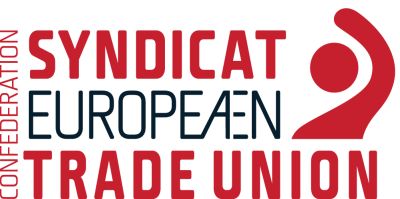
ETUC Economic Policy Committee
Statement to the Macroeconomic dialogue at technical level
Brussels, 19 January 2016
The ETUC Economic Policy Committee met in Brussels on 19 January 2016 in order to prepare the Macroeconomic dialogue technical meeting.
The Committee, having analysed and evaluated the state of the European Union’s economic base, remains very preoccupied by the high level of unemployment, especially long-term unemployment and youth unemployment, the rise in precarious jobs, and the number of people living below the poverty threshold or at risk of poverty. It believes that the current chaotic period is the continuation of the 2007-2008 crisis and the 2012 recession, the double dip crisis, in Europe. What the European Commission describes in its Annual Growth Survey 2016 as “moderate recovery”, would be more correctly interpreted as weak recovery. Indeed, the main sources of growth are very fragile, being very temporary and volatile factors, while some member States governments no longer pursue austerity to the same extent as before.
Although the Committee welcomes the EU’s commitment to relaunching investment, it is concerned that the impact of the investment plan i.e. the Juncker plan, is too small to sustain the recovery. Rather than correcting the investment breakdown in Europe, it brings additional guarantees for risky investments at a time of crisis.
Indeed, analyses show that European policy-makers’ export-led strategy, while providing sources of growth, was made possible by the unconventional monetary policy implemented by the US Central Bank, the Bank of Japan, the Bank of England and the European Central Bank. This strategy was complemented by major and concomitant cuts in public spending and wages, lowering aggregated demand at the European level. It resulted in a huge and unsustainable current account surplus at the European level and a slowdown in inflation rates. Such a state of affairs should call for pro-active investment policies, especially public investment as recommended by the ILO and the IMF, and a more sustainable income distribution. The Committee opposes wage cuts, noting that real wage growth rates have been well below productivity growth rates in developed economies for the last 15 years.
Furthermore, the Committee is very concerned about future developments in global markets, pointing out the risks of economic and financial crisis following turmoil in emerging markets. Indeed, recent events show that the slowdown in the Chinese economy, coupled with the change in the Fed monetary policy, could lead to financial instability, given the enormous amount of debt denominated in foreign currencies, which could impact on the European economy. Currency volatility could become the norm and threaten the export-led model chosen by the European Union, especially when the ECB finishes its quantitative easing programme.
Therefore, the ETUC Economic Policy Committee is urging European political leaders to act quickly to relaunch internal demand in a coordinated manner, in order to put the economy back on track towards a fair and sustainable growth model.
